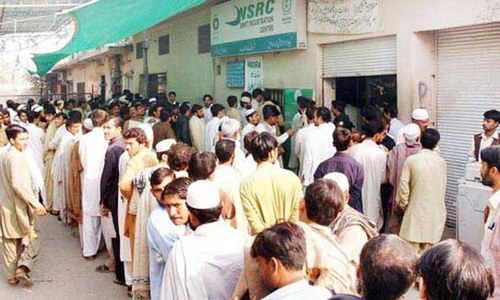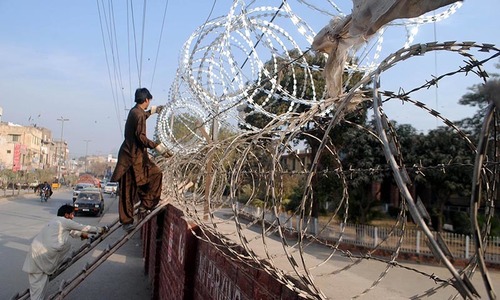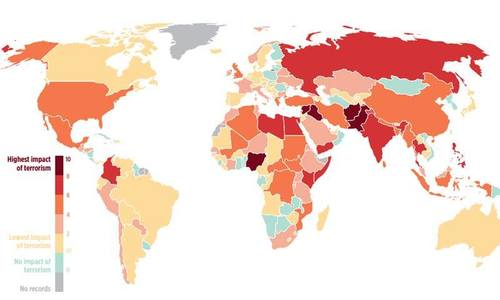ISLAMABAD: Mohammad Waleed Khan, 16, is a student of the Army Public School (APS) Peshawar and was shot six times in the APS attack on Dec 16, 2014.
On Monday, Mr Khan received a standing ovation at the launch of a digital database on terrorism prepared by the Pakistan Institute for Conflict and Security Studies (PICSS).
The database, which was dedicated by the Islamabad-based think tank to the APS victims, contains statistics on terrorist attacks in Pakistan over the last 15 years.
Recalling Dec 16 last year, Mr Khan said his mother had hugged him in the morning before sending him to school.
“I was in the auditorium for a biology lecture. We heard gunshots, so our teacher locked the door, but the terrorists broke the door and entered the auditorium. They opened fire, and I was shot six times in the face, and once each in my arm and leg,” he said.
“I thought I was taking my last breaths, and my last wish was to hug my mother again. Then suddenly, I thought the saviour (Allah) is more powerful than the killers, and I stood up and went to the corridor, and lost consciousness.”
Database dedicated to APS attack victims, will provide options to study comparative patterns of attacks
“Someone moved me to CMH, where I remained unconscious for a week. On the eighth day, I opened my eyes, and spent 30 days in the intensive care unit (ICU) and four months in the ward. There was pain, but the greater pain was that I had lost my friends,” he said.
“After that I was sent to the United Kingdom, and after surgery I recovered fully and continued my education at APS. I was just a child before the incident, but now I am more powerful and determined.”
Quoting Nelson Mandela, Mr Khan said that education was the weapon which could be used to change the world and said education should be given greater priority.
Andaleeb Aftab, a teacher at APS and the mother of Huzaifa Aftab, one of the victims of the attack, also spoke at the launch. “No doubt my son has made me proud. He was innocent and used to help people. Although terrorists have taken children from 122 mothers, [they have not taken] courage from them,” she said.
Tufail Khattak, the father of Sher Shah, a victim of the attack, said he was proud of his son’s sacrifice. He said the nation stood behind them, and that efforts should be made to build a nation instead of sects.
The database, formally launched by Khyber Pakhtunkhwa Governor Sardar Mehtab Ahmad Khan, provides options to study comparative patterns of terrorist attacks, the types of attacks, the types of casualties, and region and district-wise comparative analyses, among other aspects. The database will issue 10 reports to its users.
Mr Khan said that accurate data is important for policy formulation and assessment and that the APS attack was a crime against humanity. “I was in South Waziristan when I learnt of the incident, and instructed that steps be taken to save the children. I can only say that we will not allow our enemies to hit us again,” he said.
He said that residents of Pakistan were once peaceful, but decisions by the state had divided them.
“We did not make decisions wisely. Most of the decisions were made in haste, and in the interests of the world powers. But things have now changed. Although there are expectations that we should play a role in Syria and remove the government of Bashar al-Assad, we will not make any decision without thinking about it first,” he said.
PICSS chairperson Akram Zaki said the PICSS Militancy Database depicts five phases of terrorist attacks in Pakistan since 9/11. The first phase was from 9/11 to 2004, when violence was at its lowest point.
The second phase, he added, was the entry of Pakistani forces into Fata at America’s behest, which caused militancy to spread all over the country.
Published in Dawn, December 29th, 2015















































